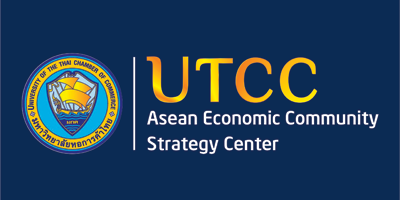Myanmar: Tax exemption on interest income questioned
The Ministry of Planning and Finance has issued a statement on February 19 that income tax will not be levied on interest from bank savings and deposits. The statement means that tax on interest from bank deposits will be exempted in the coming 2017-18 fiscal year.
However, interest from bank deposits is not the kind of revenue which has been given permission to receive tax exemption according to the 2017 Union Tax Law, experts told the Myanmar Times.
Bank interest rate was more than 10 percent in early 2012, and was reduced to 8pc in the following years. Nowadays, private banks have increased interest rate on fixed deposit accounts to attract morw customers. The local banks have also increased interest rate by expanding the various types of fixed deposit accounts available to customers.
Accepting deposits from customers and making loans to businesses and business entrepreneurs is the main activity of a bank to remain profitable.
But, U Soe Thein, a former deputy director general in the budget department of the Ministry of Planning and Finance, said that introducing such tax exemption would be a wrong move.
“The purpose of the tax is not just for the benefit of a group of people – the benefit of the entire country must be taken into account. According to the law, only those with income more than 4.8 million must be taxed. So there is no worry for those with an income less than 4.8 million.
“If the government does not collect tax, where will it get the money to run the country? If the government spends without revenue, budget deficit will result and other problems or issues will arise continuously.
“I cannot imagine a situation where the government does not collect tax because of demand from the people. If income is above the taxable threshold, it has to be taxed and that is a must,” said U Soe Thein.
Currently, a minimum of k60 million of bank deposit is required to generate an interest of k4.8 million per year, according to the average 8pc interest rate provided by the banks. Hence, customers who deposit any amount below k60 million in the banks will not have to pay tax, a director of the Internal Revenue Department, on the condition of anonymity, told the Myanmar Times.
He added that the news of levying income tax on interest from savings and deposits were widely criticised on social media. That was why the government made a surprise U-turn not to levy tax.
“We need to consider the fact that there are people who have billions of deposits [in kyat] in the banks. These people receive hundred millions of kyat interest every year,” U Soe Thein said.
“If they do not need to pay tax, then who will do so?
“The people who should pay tax receive tax exemption instead. This belittles and discredits our country a lot,” he complained.
For some in the business community, the high interest rate deters people from investing in businesses, as revenue generated from savings or deposit interest is more profitable than doing businesses. Some pointed to the fact that, in Myanmar, the expenditure for electricity supply, lease and other expenses are much higher than other countries in the region. This puts businesses in a more difficult position.
“Doing business can result in a loss if the business doesn’t go well. If money is kept at a bank, surely one can get profits. Therefore, there are very few people who do businesses.
“We want the government to collect tax from the interest from bank deposits. Then, the financial resources can flow into businesses and there will be more enterprises,” said businessman U Myat Thin Aung said.
According to economic expert U Zaw Phay Win, the higher the interest rate for deposits, the higher the interest rate for bank loans. A high interest rate for loans will hinder businesses from extracting sufficient capital and there will be fewer businesses.
But the issue is not as straightforward as cutting deposit interest rate.
“Taking into account the existing situation of local banks, if the interest of deposits is low, there may also be a problem: people may not deposit money in the banks and so … we should only reduce the rate gradually and slowly,” the expert suggested.
The Central Bank of Myanmar has issued an instruction for interest rate not to be lower than 8pc for fixed accounts and no more than 13pc for bank loans.
Local banks pay a maximum of 8pc for interest on deposits and 10pc for interest on fixed accounts of over one year.
Currently, Kanbawza Bank (KBZ) set up a fixed account system named Su Pwar and 9.25pc of interest is paid for one-year fixed accounts, 9.50pc for two years and 10pc for three years.
Yoma Bank also started paying 9.20pc of interest for fixed accounts earlier this year, while, Tun Commercial Bank pays 9pc of interest for one-month fixed accounts and 10pc for one-year fixed accounts.
“It is true that the interest rate for deposits and savings is higher than in other countries in the region,” U Zaw Phay Win said.
Source: http://www.mmtimes.com/index.php/business/25099-tax-exemption-on-interest-income-questioned.html


 Thailand
Thailand




